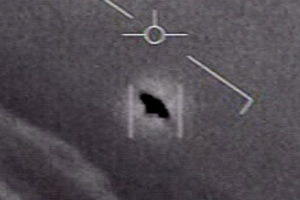World UFO Day
 On June 24, 1947, near Washington’s Mount Rainier, private pilot Kenneth Arnold saw
nine shiny, saucer-like objects flying in a long chain at 1,200 mph, far faster than
any known aircraft of the day. The ensuing media frenzy and many reported sightings
in subsequent weeks—including the Roswell Incident in July—kicked off our collective
captivation with Unidentified Flying Objects (UFOs). Seventy-eight years later, enthusiasts
around the world will celebrate July 2 as World UFO Day.
On June 24, 1947, near Washington’s Mount Rainier, private pilot Kenneth Arnold saw
nine shiny, saucer-like objects flying in a long chain at 1,200 mph, far faster than
any known aircraft of the day. The ensuing media frenzy and many reported sightings
in subsequent weeks—including the Roswell Incident in July—kicked off our collective
captivation with Unidentified Flying Objects (UFOs). Seventy-eight years later, enthusiasts
around the world will celebrate July 2 as World UFO Day.
Pilot Kenneth Arnold’s report on the first UFO sighting in 1947, from which the media coined the term “flying saucers.”
What was once the purview of conspiracy theorists has now entered the mainstream. Advances in sensor technology and personal aircraft use have caused an upswing in reports of what are now called Unidentified Anomalous Phenomena (UAP). The U.S. Department of Defense (DOD) considers the uptick a potential threat to national security, not from other planets, but from adversarial actors here on Earth.
@theU spoke with Richard Medina and Simon Brewer of the University of Utah’s School of Environment, Society & Sustainability about their research that helps make sense of the technology filling our skies. In a study last year, they found that the Western U.S. is the best region to spot UAP due to our dark skies, open spaces and proximity to military installations. This World UFO Day, keep one eye on the sky.
About the Blog
Discussion channel for insightful chat about our events, news, and activities.
